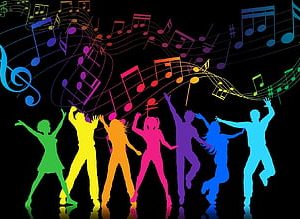Description
Africa has vibrant cultures, diverse traditions, and a rich musical heritage. Encompassing an array of styles, rhythms, and instruments, African music is a tapestry woven with threads of history, spirituality, and community. From the rhythmic beats of the djembe echoing across the savannah to the soulful melodies of the kora drifting through the air, Africa’s musical landscape is as vast and varied as its landscapes.
African music’s heart lies in a deep connection to the land and its people. Traditional instruments such as the mbira, balafon, and talking drum are tools for making music and vessels for storytelling, rituals, and communication. Each instrument carries centuries of tradition and cultural significance passed down through generations.
One of African music’s defining features is its infectious rhythms. Whether it’s the polyrhythmic complexity of West African drumming or the hypnotic grooves of South African mbaqanga, rhythm is the heartbeat that drives African music forward. These rhythms serve as the foundation for dance and celebration and as a means of expressing emotions, histories, and identities.
However, African music is not confined to the traditions of the past. It is a living, breathing art form that continues to evolve and adapt to contemporary influences. African musicians are constantly pushing boundaries and exploring new sonic territories, from the electrifying sounds of Afrobeat pioneered by Fela Kuti to the fusion of traditional and modern styles in genres like Afro-house and Afrobeats.
Moreover, African music is a powerful social commentary and political expression tool. Artists like Miriam Makeba, Fela Kuti, and Youssou N’Dour have used their music to speak out against oppression, injustice, and inequality, illuminating issues facing their communities and inspiring change.
In recent years, African music has experienced a global resurgence, partly thanks to the rise of streaming platforms and social media. Artists like Burna Boy, Wizkid, and Tiwa Savage have garnered international acclaim, bringing African sounds to new audiences worldwide and cementing the continent’s place on the global music stage.
But beyond its commercial success, African music remains a source of pride, identity, and connection for millions across the continent and beyond. It celebrates resilience, creativity, and Africa’s enduring spirit—a reminder that music can unite us all, no matter where we come from.





Mathew –
African music has this magical ability to make you want to move. The infectious rhythms and grooves are simply irresistible! Whether I’m dancing around my living room or just tapping my foot along to the beat, it always puts a smile on my face. It’s like a burst of joy in musical form!
Okechukwu –
Listening to African music is like taking a journey across the continent without leaving your seat. Each song is like a window into a different culture, a different way of life. It’s not just about the music; it’s about the stories, the traditions, the rich tapestry of African heritage.
Binta –
I’ve always been drawn to music that has a message, and African music delivers that in spades. The songs are not just about entertainment; they carry powerful messages of hope, resilience, and unity. Listening to African music feels like being part of a movement for positive change.
Saheed –
What strikes me the most about African music is its incredible diversity. From the upbeat Afrobeat tunes to the hauntingly beautiful melodies of traditional instruments, there’s something for everyone. It’s amazing how each region has its own distinct sound and style.
Happiness –
I stumbled upon African music while looking for something new, and I’m so glad I did! The rhythms, the melodies, everything about it feels so authentic and soulful. It’s like a journey to another world with every song.